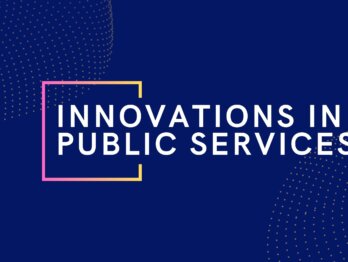Seeking your feedback on draft Rules as Code primer

Today we’re seeking your help in finalising our Rules as Code primer – “Cracking the code: Rulemaking for humans and machines”. We’re seeking feedback until 24 June, with the hope of finalising the report for release in late July or early August.
In November 2019, OPSI commenced work on a new Innovation Primer focused on the exciting concept of Rules as Code (RaC). At the time, we wrote that ‘Rules as Code presents a new approach to designing rules for human and machine consumption’ and that it ‘involves rethinking a core function of government and reinventing it for compatibility with our digital age’.
We also wrote that ‘if government is to be truly responsive, transparent and effective, then Rules as Code could be an important part of making this a reality’.
In the subsequent months, we have put some effort into testing those claims. Resulting from our call for input, we have spoken with dozens of people from within local, state and national governments, industry and academia. We have spoken with technologists, policymakers, service design and delivery experts, legislative drafters, lawyers and regulators, who hail from countries across the world. These conversations have revealed many insights, most of which have led us to us back towards the same conclusion we reached on RaC then. That is, that:
While there are challenges and implications to consider, its [RaC’s] potential to transform the operations of government is significant.
Today, we are releasing a draft version of a tentatively titled “Cracking the Code: Rulemaking for humans and machines“ for full public consultation. We hope that by opening the draft up for public critique that we will be able to develop and strengthen the arguments presented.
The public consultation will run from today (Wednesday 27 May) until Wednesday 24 June 2020. Generally, we are interested in feedback on all aspects of the primer. More specifically, we would invite those with domain expertise to provide feedback on:
- The technical description of the RaC concept and discussions around technical solutions (Chapters 2 and 6)
- The practical steps that policymakers, legislators, regulators and service design and delivery experts could take to begin implementing a RaC approach in their jurisdictions (Chapter 8).
We know that we may not have everything correct. RaC is a complex topic and, while we have sought to represent the concepts and arguments accurately, we do not always possess specific expertise in all the relevant areas. Further, with RaC being a new and innovative concept, we understand that things will change as concepts, ideas and practices evolve over time.
At the same time, nor can we hope for the primer to be entirely comprehensive. Its purpose is to help make this subject accessible and navigable, particularly for public sector officials who may not be technical experts but for whom RaC may still be significant.
With your feedback, we hope that the primer will give confidence and direction for those in the public sector considering RaC and its potential application in their government. We want it to stimulate the conversation about its potential benefits and challenges, and spark investigation, experimentation and further research.
We welcome your submissions and encourage you to share the opportunity to comment with others who may be interested.
Our preferred form of comment is via a Google Documents version, available here.
Alternately, the Primer is available for download as a full word document here.
For more information or questions, please email [email protected] or join the conversation on Twitter at #RulesAsCode.











